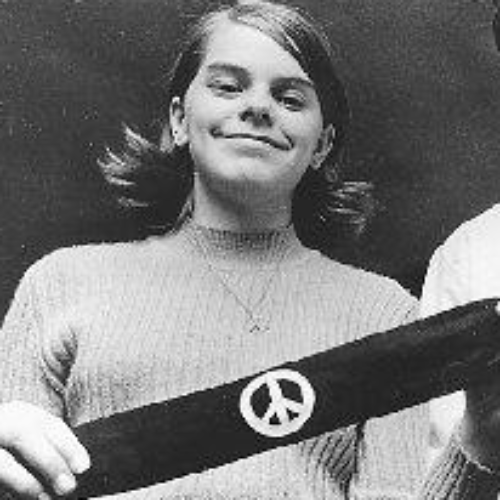Des Moines 1969 SEARCH FOR STATE STANDARDS Lesson Plan. Contributor Names Fortas Abe Judge.
 24 Feb 1969 Ano Tinker V Des Moines S D Cinta De Tiempo
24 Feb 1969 Ano Tinker V Des Moines S D Cinta De Tiempo
At a public school in Des Moines Iowa students planned to wear black armbands at school as a silent protest against the Vietnam War.

Tinker v des moines 1969. Des Moines 1969 Harrison Arakawa Hopoate Koloamatangi Irene Lai Brandon Noguchi Joshua Winslow Background In December 1965 students in De Moines Iowa wanted to protest Vietnam War wore black armbands If the students refused to remove the armbands it would result to suspension. The State Bar of Texas presents the information on this web site as a service to our members and other. Save to My Library.
Des Moines School Dist 393 US. Des Moines School District 1969 Opposition to the Vietnam War was mounting in Des Moines Iowa. Justice Black reasoned that the armbands were disruptive and hindered the schools ability to properly educate the students.
CERTIORARI TO THE UNITED STATES COURT OF APPEALS FOR THE EIGHTH CIRCUIT. Students learn about the concept of symbolic speech and how students gained the right to engage in political protests at school. Des Moines affirmed the First Amendment rights of students in school.
The principals of the Des Moines school learned of the plan and met on December 14 to create a policy that stated that any student wearing an armband would be asked to remove it with refusal to do so resulting in suspension. Violating their freedom of. A group of students decided to wear black armbands during the Christmas season and to fast on December 16 th and New Years Eve.
This video focuses on three cases. DES MOINES INDEPENDENT COMMUNITY SCHOOL DISTRICT ET AL. This mini-lesson covers the basics of the Supreme Courts decision that extended First Amendment protections to students in the classroom.
Start studying Tinker v. Learn vocabulary terms and more with flashcards games and other study tools. The 1969 landmark case of Tinker v.
Mary Beth Tinker was a 13-year-old junior high school student in December 1965 when she and a group of students decided to wear black armbands to school to protest the war in Vietnam. On the basis of the majority decision in Tinker v. Petitioners three public school pupils in Des Moines Iowa were suspended from school for wearing black armbands to.
The Supreme Court ruled with the plaintiffs allowing the students to continue wearing armbands to school as a protest. Justice Harlan reasoned that as long as school officials acted reasonably towards the schools interest they should have power over the student body. .
When the principal became aware of the plan he warned the students that they would be suspended if they wore the armbands to school because the protest might cause a disruption in the learning environment. They also learn how. Des Moines is a historic Supreme Court ruling from 1969 that cemented students rights to free speech in public schools.
Supreme Court established 72 the free speech and political rights of students in school settings. The first case is the Tinker v. This case is about students silent protest on campus.
Principals of the Des Moines schools. Justices Hugo Black and John Harlan voted against Tinker. The Court held that a school district violated students free speech rights when it singled out a form.
Des Moines Independent Community School District case in which on February 24 1969 the US. 2020 Law-Related Education Department State Bar of Texas. On December 16 Mary Beth Tinker and Christopher Eckhardt wore their armbands to school and were sent home.
Parents sued the school district. The Court decided in a 7-2 decision t. Des Monies 1969 case.
Argued November 12 1968-Decided February 24 1969. Among them were John Tinker 15 and Chris Eckhardt 16 and three younger Tinker children.